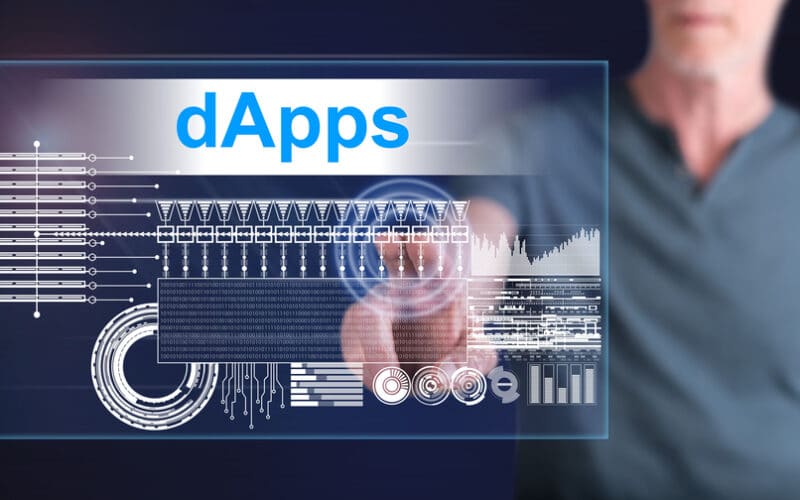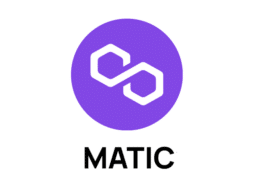Decentralized apps (dApps) are programs that operate on a blockchain. They do not use central servers and instead transact in a decentralized and peer-to-peer way.
In terms of user experience (UX), dApps might look comparable to web apps, but their back-end operations differ.
Currently, centralized systems are the most common model for software applications. This approach is used by Facebook, Amazon, Google, and every other popular service we use on the Internet.
The Stacks are useful because they provide us with a valuable service, but they are riddled with flaws.
When a dApp gets open-sourced, the structure of its business operations is altered. The result is that the Internet is the common denominator rather than a series of closed silos.
Users must trust that a decentralized, closed-source program is as decentralized as the core developers claim.
Below we discuss a few of the best dApps in 2021.
Golem
Golem, a peer-to-peer market for powering other computers from your computer, is living on the blockchain of ethereum. It’s already live after more than three years of development and fourteen software implementations.
The project sold the GNT token in 20 minutes and sold its power tokens to raise the ETH of 820,000 – about $340 million.
However, it has also been criticized for not turning around a product rather rapidly.
The mainnet launch remains a major step towards demonstrating its underlying architecture and ethereum itself, while the project remains distant from its aim of developing a worldwide supercomputer.
GNT is a service that enables computers to rent computer power for CGI creation using open-source software Blender. It works by changing Blender’s computing power using an interface that connects directly to Blender over the Internet.
And Golem Brass Beta, this latest version, is an effort to verify whether the technology works with actual money under real-world settings. “We’ve got to see how in the wild it is doing,” said Zawistowski.
Rarible
Rarible is a new platform that enables digital artists and designers to produce and sell personalized cryptographic properties that are owned by their digital work.
Each Rarible token is unique, and they are not transferable, unlike bitcoins (or other cryptocurrencies). The reason they are considered not fungible lies in this fungibility characteristic.
CryptoKitties, a game where virtual cats may be purchased and traded, is the first and best-known example of NFTs. These NFTs may even “breed” each other to generate new cats with various NFT characteristics.
Today, NFTs include digital art, memoirs, and even virtual property holdings – they can be purchased and sold online.
In order to make their work an NFT, producers must first create a token with the software of Rarible. For this, you fill out an online form and include a photo and other information, such as a price listing representing your work.
The Rarible platform produces a new coin on the network Ethereum. The NFT may be sent between wallets using Rarible’s software, similar to other tokens on Ethereum.
In order to make their work an NFT, producers must first create a token with the software of Rarible. For this, you fill out an online form and include a photo and other information, such as a price listing representing your work.
The Rarible platform produces a new coin on the network Ethereum. The NFT may be sent between wallets using Rarible’s software, similar to other tokens on Ethereum.
CryptoZen.NINJA
CryptoZen.NINJA is a dApp that links and provides regular users with various decentralized money options.
With CryptoZen dApp, the necessity to handle cryptography and grow middlemen is reduced.
CryptoZen’s energy-efficient mining solutions eliminate the need for lots of energy to be spent in mining. Users can get NINJA when normal transactions are completed using the mining application.
For mining aficionados the dApp mining program is easy.
Tokens for crypto mining have a ceiling of 25%, while most other supplies are locked. The cap of 1 billion CryptoZen is fixed.
CryptoZen seeks to empower the community, offering a reward through the management site for utilizing the dApp. Users may vote, report issues, or reject platform code modifications.
Zapper.fi
Now a major area in the bitcoin business is decentralized finance (DeFi). The DeFi Protocols aim at decentralizing traditional financial services and eliminating requirements for a central controlling organization.
Individual investors have a number of possibilities to generate an investment return from their crypto-monetary holdings.
Zapper provides one interface in one of the major blockchains, including the ERCS and HyperLedger networks, enabling interaction with leading DeFi Protocols.
Altogether, Zapper provides users of all skills with a very seamless DeFi experience.
Zapper avoids the need to interact and browse DeFi platforms’ websites. This is done from a single dashboard, and just validation from an address is required.
You may have to deposit a couple of tokens, but you may only use half if you want to give liquidity to a pool, for example. Thus for the second token, you must first exchange something and then put the two tokens in place.
Some pools additionally allow you to get cash suppliers (tokens you receive in return for cash) and to gain extra incentives.
As you can see, a number of procedures are needed, which might make someone new to DeFi rather perplexed. You can perform all this in “one-click” instead of Zapper.
Pools.fyi
Pool.fyi aims to provide the Uniswap Protocol ecosystem with information and updates for the community. It’s your safe bet to connect, track and manage your pools as well.
On their website, you can find the greatest liquidity pools.
In Pools.fyi, any pool and related data such as available cash, volume, and investment returns (ROI) may be searched within a specified time. Data are all easily available as to whether the pool is new, stable, incentivized, its products and services.
Innovation involving distributed Ledger technology, Blockchain is at the forefront. The Blocklytics parent business is responsible for the analysis outfits of the sector. They give marketers, developers and managers clear Blockchain data and analysis to keep the cloud ahead.
Uniswap Report, Foam Map leaderboard, and ETHdata is an open-source Python program to analyze smart contract data. Some of their works are noteworthy.








